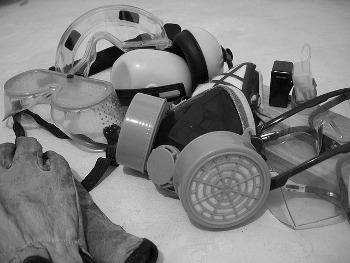 Employers are under a legal obligation to do all that is reasonably practicable to protect their staff from harm. This obligation extends to other people who might be affected by the business – such as visitors or customers.
Employers are under a legal obligation to do all that is reasonably practicable to protect their staff from harm. This obligation extends to other people who might be affected by the business – such as visitors or customers.
There are a vast number of laws and regulations setting out what employers need to do. Some are legal rules that have been developed by the courts, generally imposing a duty of care on employers with regard to their staff.
Other rules have been imposed by Parliament. One of the most important pieces of legislation is the Health and Safety at Work Act 1974, which sets out the general health and safety rules. This is then backed up by a raft of other Acts and Regulations dealing with specific issues – such as working at height – or specific industry sectors, such as construction.
What are the ways in which employers can keep their workers safe?
In very general terms, employers are required to identify and control the risks that employees might encounter in their workplace. There are a number of practices that can help them achieve this:
- A health and safety policy – This will show who within an organisation is responsible for certain aspects of health and safety and how these are to be implemented.
- Risk assessments – These help employers to identify where risks might arise and how they can be dealt with.
- Consultation with employees – This allows concerns to be raised and for everyone to be aware of and involved in ensuring safety
- Training – There is no point identifying a hazard if you don’t then tell employees how to manage the risk and why.
- Providing facilities – Toilets and washing facilities, drinking water, somewhere to eat, heating, lighting and ventilation are some of the basic requirements that go into creating a clean and safe work environment.
- First aid – A first aid kit is essential in case of accidents or sudden ill health. You should also have someone appointed to take charge in the event of a medical emergency.
Further details are set out in a Health and Safety Executive booklet for employers, called Health and Safety made simple.
In the event that an accident does occur and someone is injured another set of rules comes into play. Under The Reporting of Injuries, Diseases and Dangerous Occurrences Regulations 1995 (RIDDOR), employers are required to report and keep records of:
- work-related deaths;
- certain serious injuries;
- diagnosed cases of certain industrial diseases;
- and certain near-miss incidents.
How can I get advice on my claim?
If you have been the victim of any type of workplace accident and believe that it was caused at least in part by the negligence of another, then you may be able to make a valid claim for compensation.
At Thompsons Solicitors, we understand what a difficult time this is likely to be for you and your family, potentially requiring a long period of readjustment and rehabilitation so that you can cope with your injuries. That's why our expert personal injury lawyers are here to help you obtain the redress that you deserve.
Winning more than nine out of ten cases we take to court and recovering over £1 million each week for our clients, Thompsons has all the necessary expertise, care, and compassion to help you with your claim.
To receive honest, straightforward advice about your case today, why not give us a call on 0800 0891 331 and talk things over for free with one of our work injury experts. There is no obligation, and we have a no win no fee package available if you wish to take things further.



